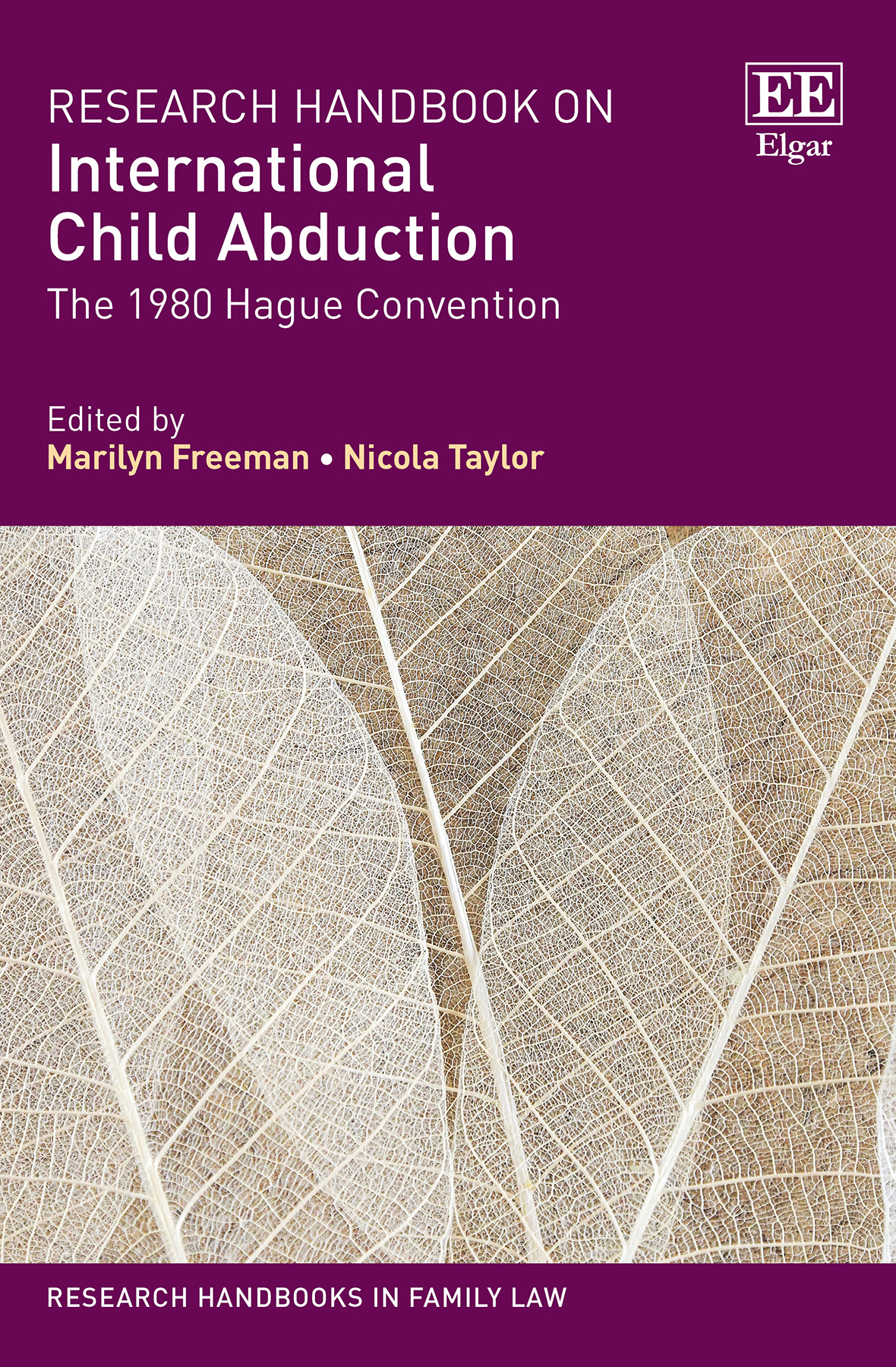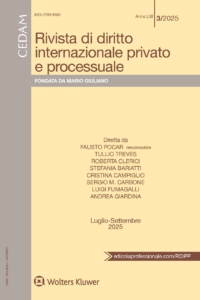This case note is kindly provided by Dr. Samuel Vuattoux-Bock, LL.M. (Kiel), Freiburg University (Germany)
On May 23, 2024, the Stuttgart Higher regional Court (Oberlandesgericht), Germany, ordered the return of a child to Israel under the Hague Convention on the Civil Aspects of International Child Abduction. The war waged by Israel following the terrorist attack of October 7, 2023 is not sufficient in itself to establish a concrete risk of physical or psychological harm to the one-year-old child.
1. Facts
The decision is based on the following facts. A couple moved to Israel in 2020. They had a child together in 2023 (with Greek citizenship) in Haifa (northern Israel). In February 2024, the mother of the child (German citizenship) flew to Reutlingen (Germany) without the knowledge and consent of the father. Thereupon, the father filed an application for the return of the child to Israel under the regime of the Hague Convention on the Civil Aspects of International Child Abduction, as Israel is a member state thereof. Both the District Court (Amtsgericht) and the Higher Regional Court of Stuttgart ordered the return of the child to Israel.
2. Decision of the Court
The Higher Regional Court ruled that there was no actual, concrete risk of physical or psychological harm within the meaning of Art. 13(1)(b) of the Hague Convention for the child in Israel. The formal state of war in Israel and the region is not sufficient to justify such a risk. Furthermore, the situation is not comparable to the situation in Ukraine, where the same court refused to order the return of the child in 2022. The court based its reasoning on three main points: the alert levels of both the German and Israeli authorities do not indicate a concrete risk to the child’s safety; in light of the recent situation in Israel, and in particular the “Iron Dome”, there is no concrete risk to the child being in Israel; the situation, despite the state of war in the Middle East, is not comparable to the war situation in Ukraine.
a. Sufficient security level and no concrete danger for the child
The mother argued in court that the threat of “massacres and attacks” in Israel is growing, as is the threat of Hezbollah attacks from Lebanon. The mother also claimed that Hezbollah rockets had been fired into the suburbs of Haifa, where the child lived.
The court first referred to both German and Israeli travel warnings. According to the German authorities, Israel is in a “formal state of war” and an escalation is possible at any time. On the contrary, the Israeli National Emergency Portal of the Home Front Command shows the regions of Tel-Aviv/Haifa/Ashdod-Gimmel and Netanya-West as secured (lowest emergency level “green- full activity”). Since travel warnings alone are not sufficient to establish a danger under Art. 13(1)(b) of the Hague Convention, the Court gave precedence to the security assessment of the Israeli authorities.
For the Court, the risk associated with the current conflict in the Middle East is not sufficiently concrete with respect to the child’s situation. To justify its decision, the Court analyzed the various actual security and war events of the past month in Israel. The hostage-taking by the terrorist group Hamas on October 7, 2023 cannot be considered an actual risk today. For the Court, the Israeli offensive in the Gaza Strip makes a repetition of such events “from a realistic point of view” very unlikely (No. 87). Furthermore, the drone and missile attacks of April 14, 2024, from foreign countries, in particular from Iran, must be analyzed as exceptional and, as such, cannot be taken into account in the assessment of the risk to the child (No. 88). Moreover, the Israeli air defense system “Iron Dome” has been effective in this context (No. 88, 96).
The Court draws the same conclusions with regard to the suicide bombings, explosions and other rocket fire that have occurred on Israeli soil. The Court sees only an abstract risk and a need for increased vigilance. These attacks, as terrorist attacks, are merely “criminal activities of individuals” (No. 91). These events were not presented by the mother in a sufficiently concrete manner to allow the court to see a concrete physical or psychological risk for the child. Finally, the Court bases its decision on the fact that the parents moved to Israel in 2020, informed of the complex situation in the Middle East. The Court cannot ignore that the security situation in Israel has been “tense” for some time (No. 91). For the Court, the situation here is definitely different from the situation in Ukraine.
b. Situation not comparable to Ukraine
The Higher Regional Court of Stuttgart decided in 2022 to refuse the return of a child to Ukraine (specifically Odessa) based on the actual risk according to Art. 13 (1) b) due to the war provoked by Russia. The court explained in detail why the situation in Israel was not comparable.
In contrast to Israel, Ukraine faces a massive, formally organized war, with military troops on its soil (No. 94), coming from a “militarily dominant great power” (No. 97). Israel, on the other hand, faces attacks coming from outside its own country (besides the concrete events around the Gaza Strip). Even taking into account Iran, the concrete threat is not comparable (No. 97). Moreover, the number of victims in the Russian-Ukrainian war since February 2022 is massively not comparable with the (civilian and military) victims in Israel, even taking into account the victims of the Hamas attack on October 7, 2023 (No. 95). Finally, according to the Court, the (so far) efficient Israeli “Iron Dome” provides good security for the entire Israeli territory, in contrast to Ukraine, whose large territory is much harder to defend against air attacks. (No. 96).
3. Comparison with decision from neighbor states toward Israel (France, Belgium)
In the past, some other European courts have found that the explosive situation in the Middle East and Israel constituted a risk within the meaning of Art. 13(1)(b) of the Hague Convention. The Court of Appeal of Brussels, in a decision of 2003, did not find a concrete risk for the child in Israel, but (very similar to the Stuttgart Court) only a general situation for the civilian population, including in view of the then possible war of the USA against Iraq and the training of children with gas masks. A decision of the French Court of Appeal of Chambéry in 2016 (confirmed by the French Cour de Cassation in 2017) decided to order the return of children suffering from AIDS to Israel, justified by the fact that Israel offers a good treatment for AIDS patients and that Israel, even if it experiences difficulties, is “definitely not at war”. The question remains whether the court would have made a similar decision today, given the current situation in Israel and the Gaza Strip.
4. Final remarks
It appears that for the Court, the fact that the one-year-old child has not yet experienced a concrete attack in Israel is sufficient to establish a risk under Art. 13(1)(b) of the Hague Convention (this was the case, for example, in the Ukraine decision 2022). In view of the highly unstable situation and the escalation in the region, it is at least questionable to disregard the psychological aspects of experiencing, for example, air defense alerts and such stressful war situations – especially for a very young child. Since the political time is much faster than the judicial time, a strong discrepancy of decision can occur regarding the abduction of children in war zones. On the other hand, the interests of such a young child, who will soon be sent to school and separated from his father for an unknown period of time, must be taken into consideration. It is regrettable that this aspect did not play a major role in the Court’s decision. Thus, the state of war in Israel and the Middle East is not only extremely complex in terms of diplomacy and public international law, but also in terms of private international law.


